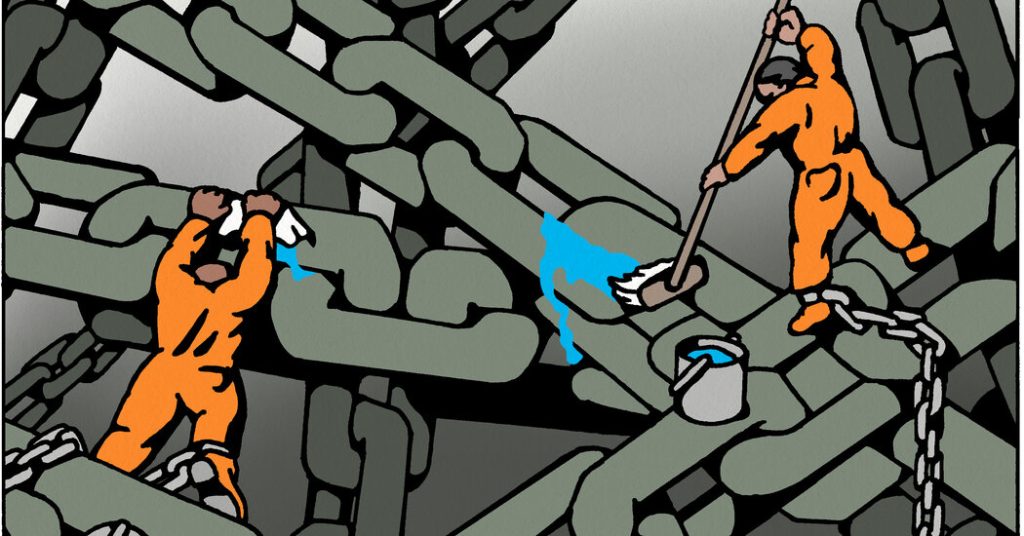Juneteenth marks the day when word of the Emancipation Proclamation reached the farthest outpost in America, but many people are unaware that this did not legally end slavery in the United States. The 13th Amendment, which prohibited involuntary servitude, except as a punishment for crime, allowed for the continuation of forced prison labor in various forms. This convict leasing system, where freed men and women were arrested under false charges and leased out to work for plantation owners and industrialists, has been described by some historians as “worse than slavery.” Today, a majority of incarcerated Americans work under duress for extremely low wages or, in some cases, for no pay at all. The federal government and state agencies are among those benefiting from products made by prisoners in the United States.
This forced labor in prisons is considered a violation of fundamental human rights and should be banned in a nation that prides itself on teaching others about liberty. While some prisoners want to work while serving their sentence, fair pay for their labor should be guaranteed. The prisoner rights movement of the late 1960s and early 1970s called for raising prisoners’ hourly pay, and today, efforts to repeal the exception clause of the 13th Amendment have gained momentum in multiple states and at the federal level. These measures aim to outlaw forced labor in prisons, but do not necessarily ensure that prison labor is paid at a fair wage. Resistance to these amendments stems from concerns about costs and some legislators believe these measures would coddle criminals.
Formerly incarcerated individuals have spoken about the difference fair pay would have made in their lives, allowing them to contribute to future benefits like Medicare, Social Security, and unemployment insurance, save money to re-enter society, and avoid participating in illicit activities due to low pay. Paying incarcerated individuals a minimum wage could potentially produce a net national benefit of up to $20.3 billion per year by reducing reliance on welfare services and promoting public safety. The moral cost of perpetuating coerced labor must also be considered, as everyone deserves the basic human dignity of being protected from slavery and having the freedom to refuse unsafe and poorly paid work assignments.
It is high time to address the unfinished business of Emancipation over 160 years after the proclamation by ensuring fair pay for incarcerated individuals who choose to work while serving their sentence. Efforts to repeal the exception clause of the 13th Amendment are gaining traction in multiple states and at the federal level, aiming to outlaw forced labor in prisons. The economic benefits of paying a fair wage to incarcerated individuals far outweigh the costs, as it could save states money on welfare services and contribute to public safety by reducing the need for formerly incarcerated individuals to resort to illegal activities to support themselves. Prioritizing the human dignity of all individuals by protecting them from slavery and allowing them to refuse unsafe and poorly paid work is crucial in continuing the progress towards true emancipation.








